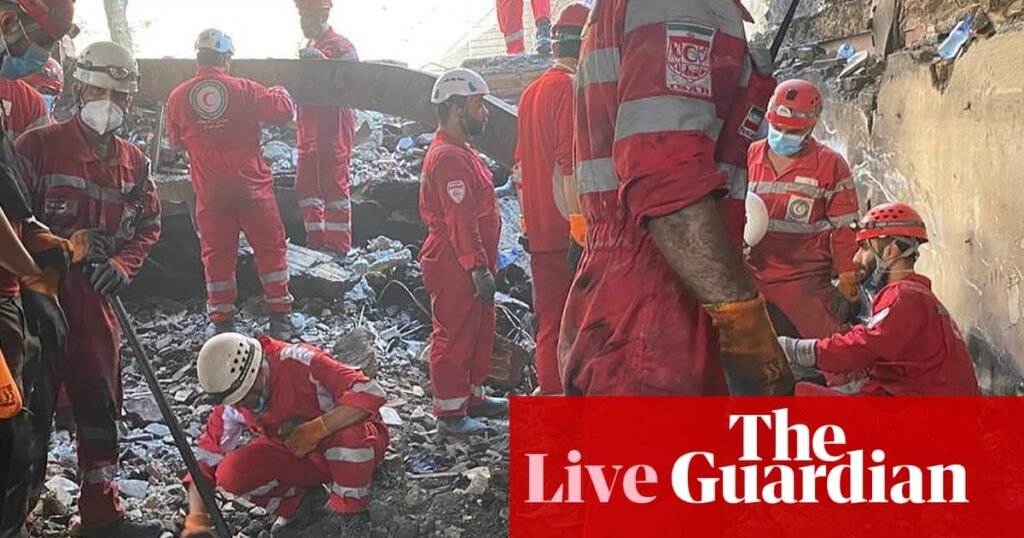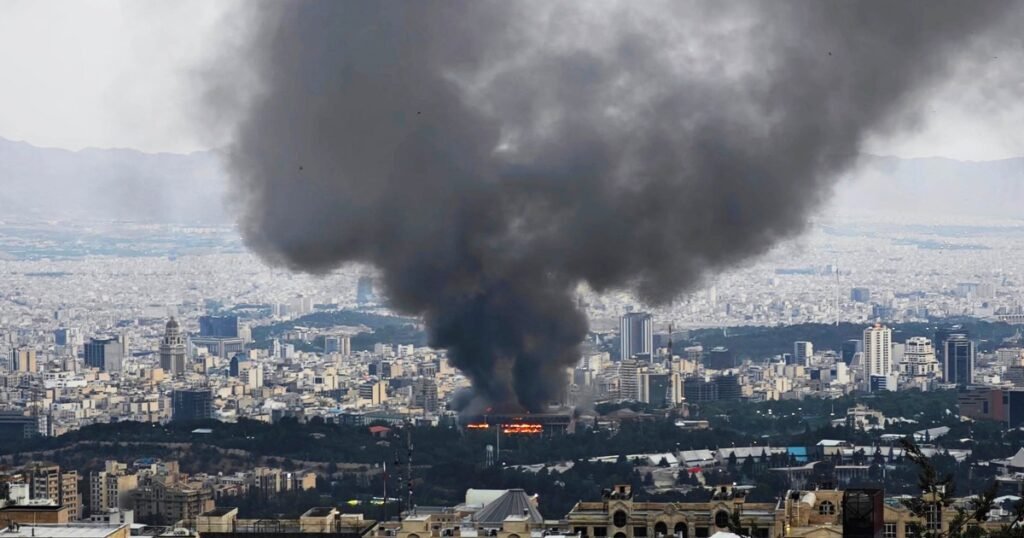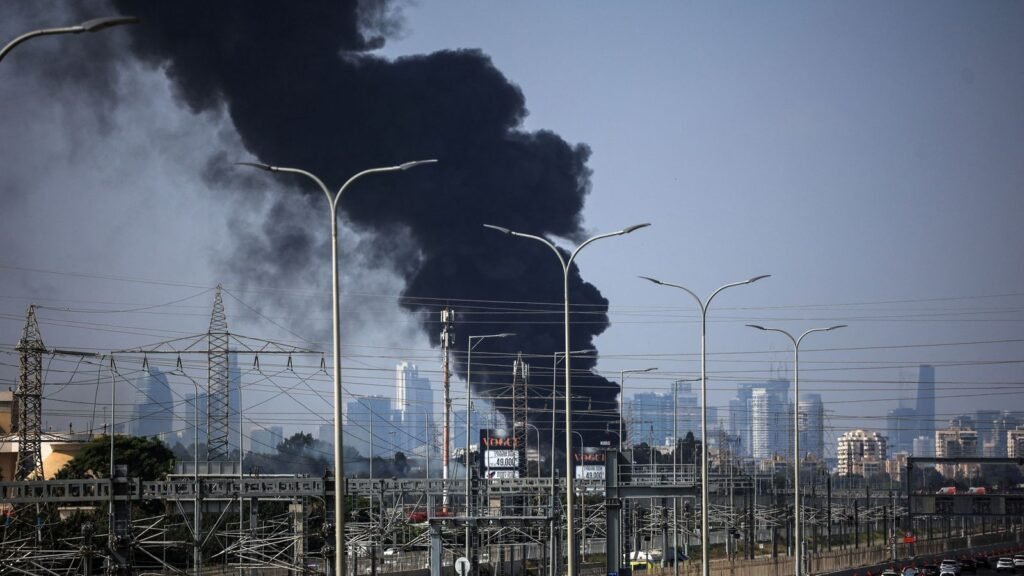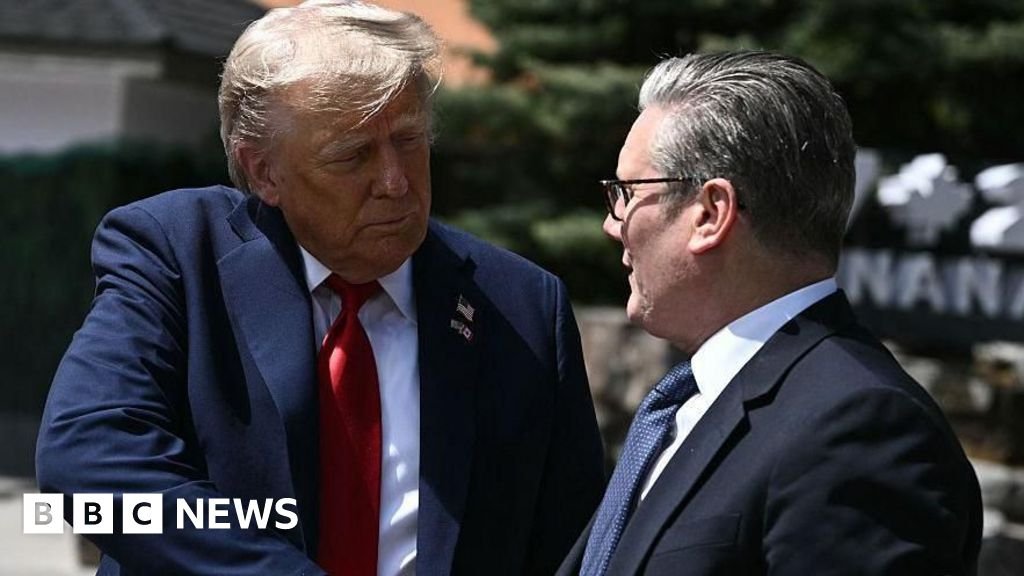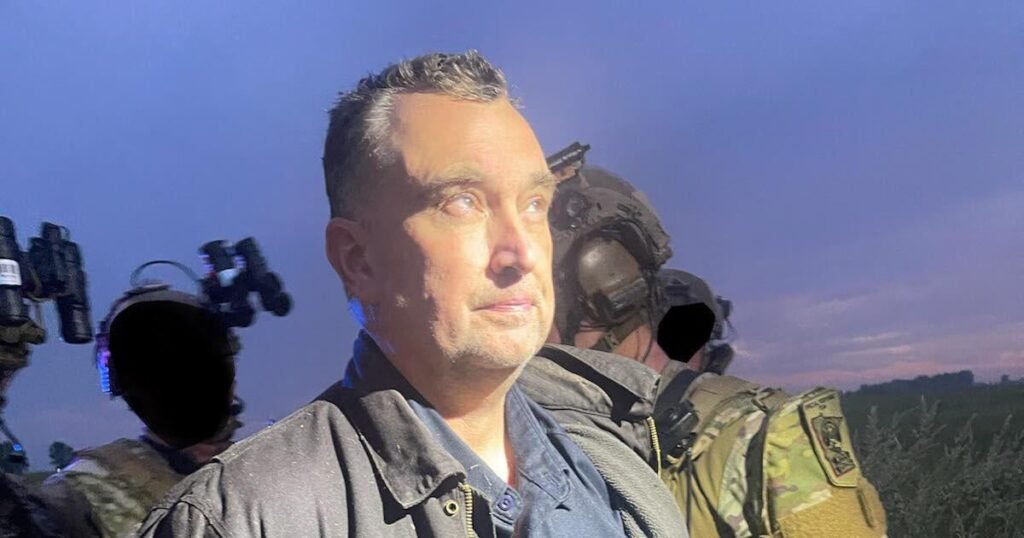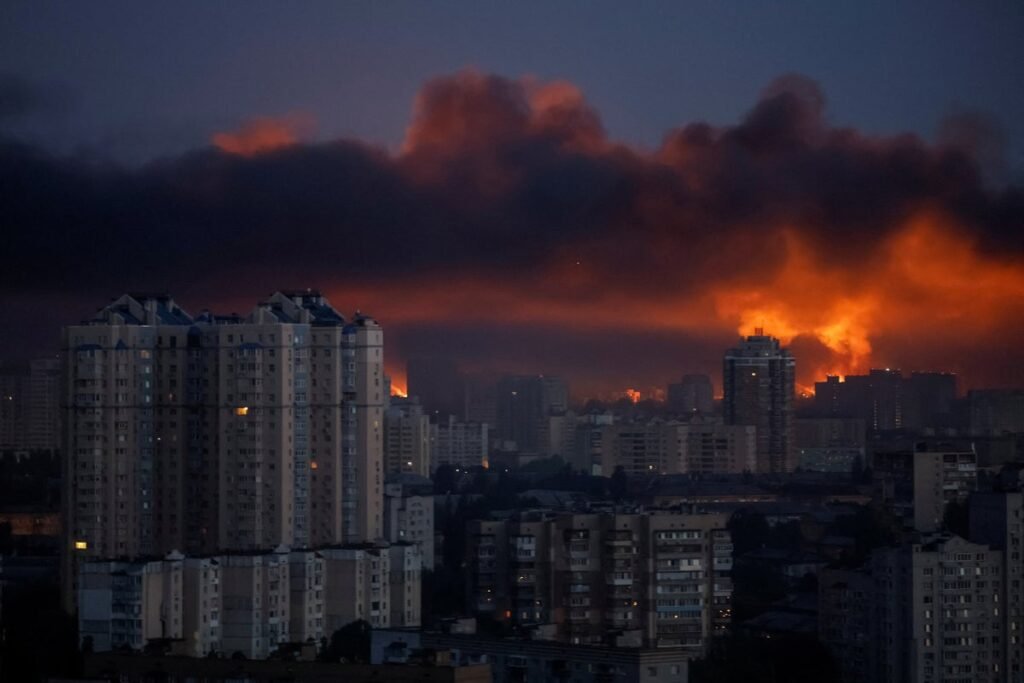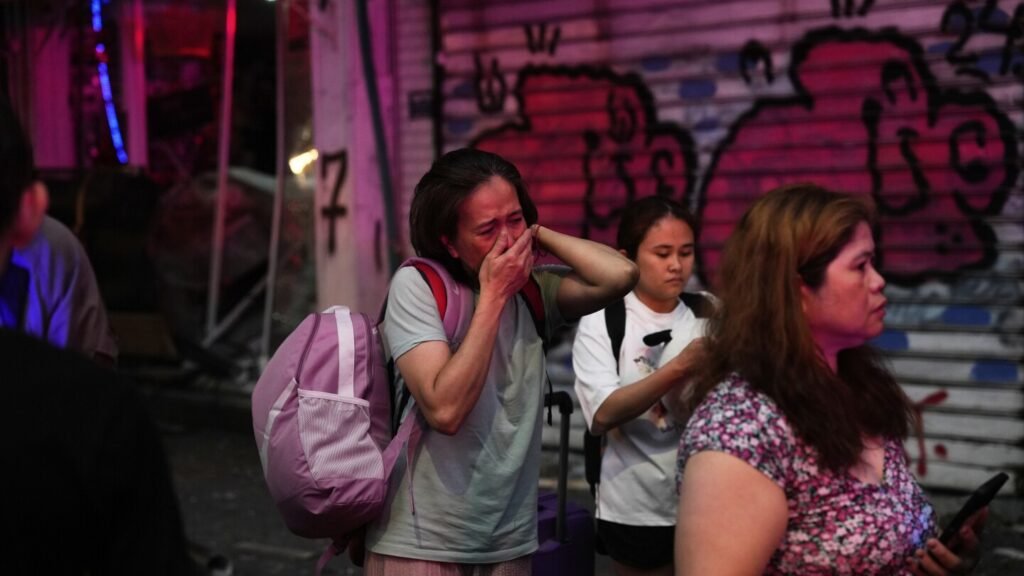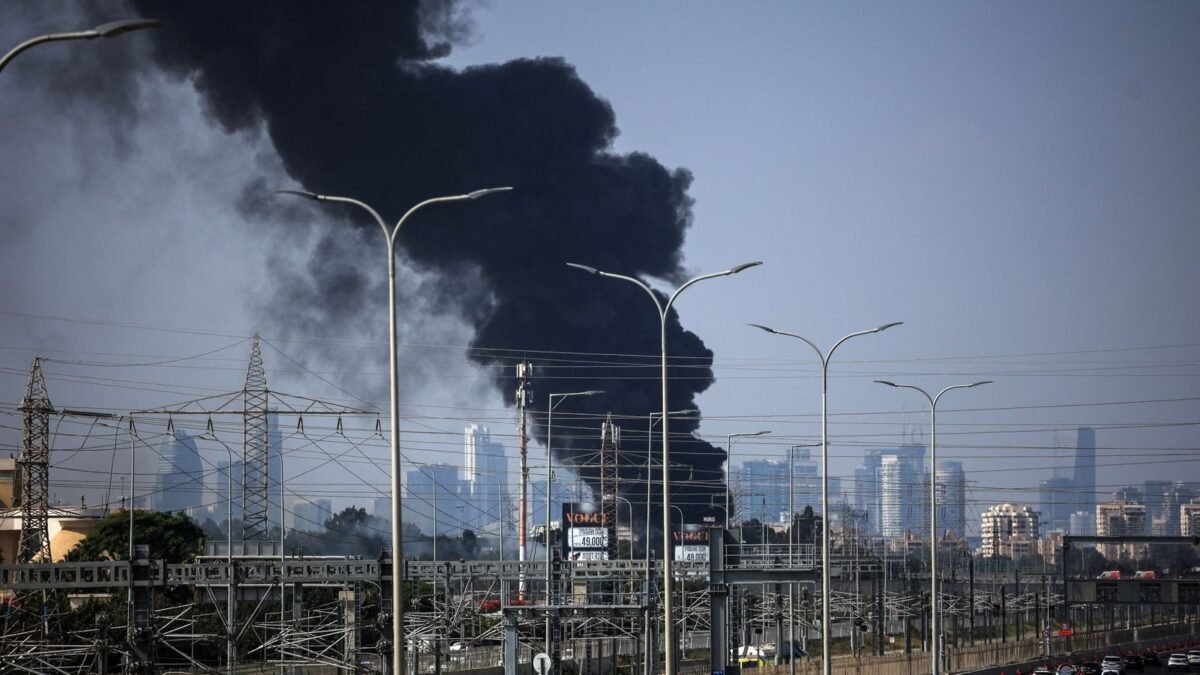Now Reading: IDF says it killed Iran’s new wartime chief of staff
-
01
IDF says it killed Iran’s new wartime chief of staff
IDF says it killed Iran’s new wartime chief of staff
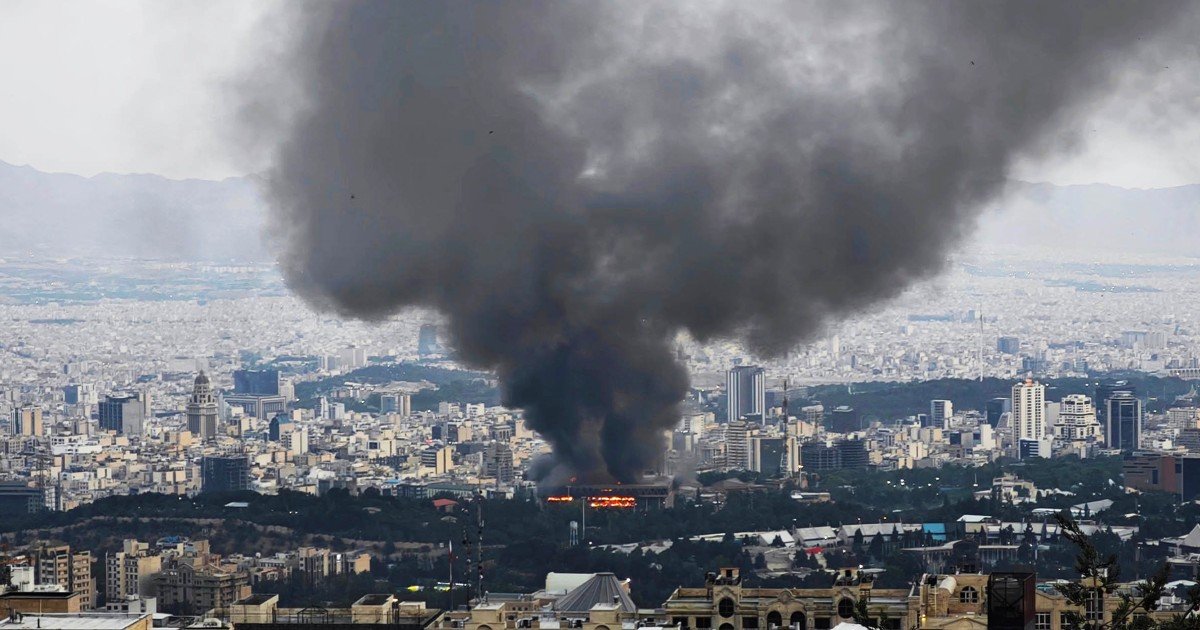
Iran says ‘more powerful’ wave of strikes launched at Israel
A “new and more powerful wave of missile strikes” has been fired toward Israel this morning, Iran’s Islamic Revolutionary Guard Corps said, in a statement via Iran’s official IRNA news agency,
“Advanced capabilities used in the operation led to accurate hits on targets” despite “full American and Western support and the regime’s access to the latest defense technologies,” the statement said.
The IRGC did not provide details or evidence of the claim, but said the strikes would continue until they achieve “the complete dismantling ” of the Israeli government.
Israel strikes drone and missile infrastructure in western Iran
Israel said it had launched several “extensive” strikes overnight on military targets in western Iran.
The Israel Defense Forces said in a statement that it had struck surface-to-surface missile storage and launch infrastructure, as well as surface-to-air missile launchers and drone storage sites.
A black-and-white video released by the IDF appeared to show multiple sites being destroyed by Israeli strikes.
Yesterday, Israel attacked the Tehran headquarters of Iran’s state broadcaster while it was live on air, calling it a “propaganda and incitement broadcasting authority” for the Iranian government. At least one employee was killed, Iranian state media reported, in what the Iranian foreign minister called a “wicked act of war crime.”
Another night of air raid sirens in Israel, though Iran fires fewer missiles
Israel’s air force said it had intercepted about 30 drones that Iran fired at Israel overnight, as the conflict between the two countries stretched into its fifth day with few signs of relenting.
Iran’s Islamic Revolutionary Guard Corps had said its drone and missile attacks against Israel would go on “continuously until dawn.”
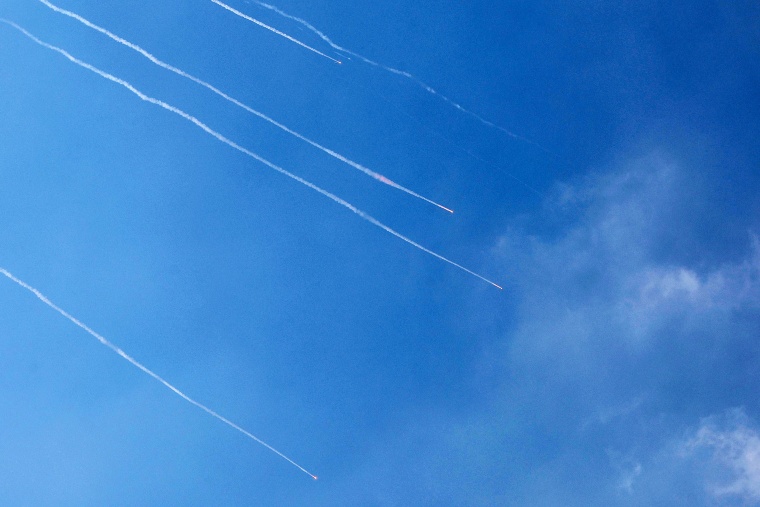
Despite the threat, the night passed with Iran firing relatively fewer missiles — and subsequently with fewer casualties among Israelis — compared with the previous several days of back-and-forth air assaults.
Iran fired fewer than 10 missiles at Israel, setting off air raid sirens in the greater Tel Aviv area and the northern part of the country.
One missile hit an empty bus in central Israel, according to the area’s mayor, but there were no casualties. The Israel Defense Forces later said it was safe for residents to leave shelters across the country.
Israel kills Iran’s top military commander for the second time
Israel’s military said it had killed Maj. Gen. Ali Shadmani, Iran’s most senior military commander, days after killing his predecessor.
The IDF said in a statement that Shadmani was killed in an overnight strike on a staffed command center “in the heart of Tehran” amid a “sudden opportunity.”
His death “adds to a series of eliminations of Iran’s most senior military leadership and degrades the chain of command of the Iranian armed forces,” the IDF said.
There was no immediate comment from Iran.
The IDF said Shadmani commanded both the Islamic Revolutionary Guard Corps and the Iranian army, and was the closest figure to Iran’s supreme leader, Ayatollah Ali Khamenei. He was appointed by Khamenei after the death on Friday of Maj. Gen. Gholam Ali Rashid.
Israel and Iran launch fifth day of attacks
Back-and-forth attacks between Israel and Iran continued into a fifth day, with Iranian state media reporting explosions and heavy air defense fire in Tehran and Israeli authorities saying missiles had been launched from Iran.
Three people were killed and four injured at a checkpoint in the Iranian city of Kashan, state media reported.
Air raid sirens sounded in Tel Aviv after midnight; the Israeli military said it had intercepted about 30 drones as well as most of the approximately 30 missiles launched by Iran. According to Israel’s Magen David Adom emergency service, about 10 people were injured on their way to shelters.
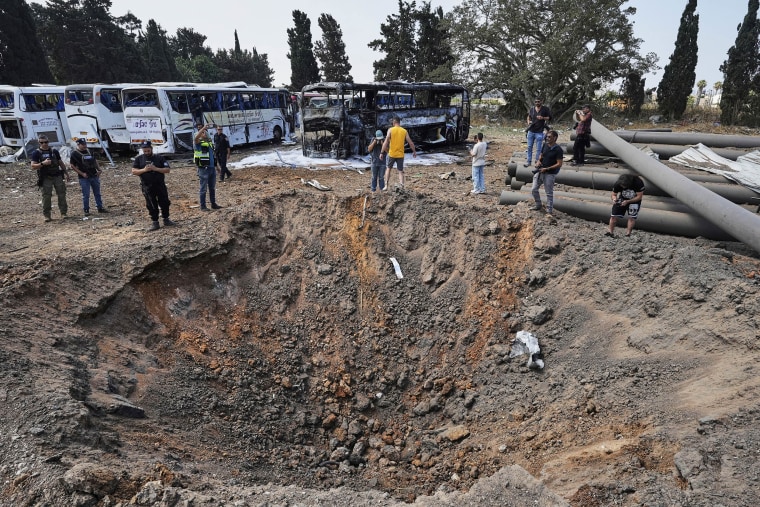
The military advised the public in the morning local time that they could leave shelters across the country.
Trump says he did not leave G7 summit to work on Israel-Iran ceasefire
Trump said his early departure from the Group of Seven summit in Canada had “nothing to do” with a potential ceasefire between Israel and Iran, disputing assertions by French President Emmanuel Macron that the U.S. president had made a proposal.
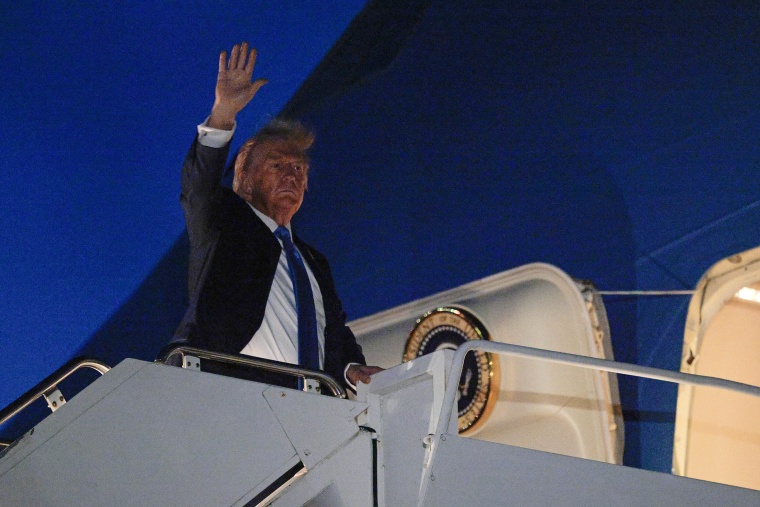
“There is indeed an offer to meet and exchange. An offer was made especially to get a ceasefire and to then kick-start broader discussions,” Macron told reporters at the G7 summit in Canada.
Trump said in a post on his Truth Social platform that Macron was wrong.
“He has no idea why I am now on my way to Washington, but it certainly has nothing to do with a Cease Fire. Much bigger than that,” he said.
White House press secretary Karoline Leavitt said earlier in a post on X that Trump was leaving the summit “because of what’s going on in the Middle East.”
U.S. Embassy in Jerusalem and branch in Tel Aviv to remain closed
The U.S. Embassy in Jerusalem and the embassy branch in Tel Aviv will remain closed for another day as military strikes between Israel and Iran continue, the State Department said.
U.S. government employees in Israel are being told to shelter in place even as some — including family and non-emergency employees — have been authorized to leave the country.
The diplomatic mission to Israel said it could not help Americans who want to leave, and it noted that Ben Gurion Airport and Israel’s seaports remained closed.
The State Department said U.S. citizens in Iran, with which Washington does not have diplomatic relations, “face serious, increasing dangers” and should depart immediately. If they are unable to do so, they should “be prepared to shelter in place for extended periods,” the department said.
G7 affirms Israel’s right to defend itself and calls Iran ‘principal source’ of regional instability
Trump and other leaders of the Group of Seven nations said that Israel has a right to defend itself and that Iran is the “principal source” of regional instability as they called for peace in the Middle East.
“Iran is the principal source of regional instability and terror,” the group, which is meeting in Canada, said in a statement. “We have been consistently clear that Iran can never have a nuclear weapon.”
The group also affirmed “the importance of the protection of civilians” and called for a broader de-escalation of hostilities in the region, including a ceasefire in the Gaza Strip.
A White House official had told NBC News earlier that Trump would not sign the statement. The president is headed back to Washington after leaving the summit early to focus on the Israel-Iran conflict.
